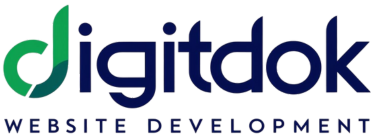Artificial Intelligence & Automation: The Evolution of Human-Machine Collaboration

Introduction
Artificial Intelligence (AI) and automation have transformed the world in ways once thought to be science fiction. From self-driving cars to intelligent chatbots, these technologies are reshaping industries, redefining human productivity, and influencing everyday life. While some fear AI replacing jobs, others see it as a revolution that enhances efficiency and opens new creative possibilities.
This blog explores the evolution of AI and automation, their real-world applications, and their impact on society—beyond technical jargon, highlighting what truly matters: how AI complements human intelligence rather than replacing it.
The Journey from Automation to AI
Automation has been a part of human progress for centuries. Early examples include the industrial revolution’s steam-powered machines, followed by the emergence of programmable computers in the mid-20th century.
AI, however, goes beyond traditional automation. Unlike fixed-rule automation, AI evolves through machine learning, neural networks, and deep learning, allowing systems to adapt, learn, and make independent decisions without explicit programming.
Key Differences Between Automation & AI:
- Automation follows predefined instructions to complete repetitive tasks.
- AI can analyze data, learn patterns, and make decisions dynamically.
- Automation is rule-based, while AI mimics human cognitive functions like reasoning.
This distinction is crucial when understanding why AI isn’t merely an advanced form of automation—it’s a leap towards true human-machine collaboration.
How AI is Transforming Industries
1. Healthcare: AI-Assisted Diagnosis & Treatment
AI-driven diagnostic systems help doctors detect diseases faster and more accurately than traditional methods. For instance, AI algorithms analyze X-rays and MRIs, predicting abnormalities more efficiently than manual assessments.
Additionally, robotic surgery enhances precision, reducing human errors. But rather than replacing doctors, AI serves as an assistant, offering data-driven insights that improve decision-making.
2. Business Automation: Chatbots & Process Optimization
AI chatbots have revolutionized customer service by providing instant, human-like responses. Automated systems now process invoices, manage inventories, and optimize workflows, reducing manual errors and boosting efficiency.
Instead of eliminating jobs, AI enables professionals to focus on creative and strategic work while automation handles repetitive tasks.
3. The Future of Smart Cities
AI-powered traffic control systems reduce congestion by predicting peak hours, adjusting signals dynamically, and analyzing patterns to enhance transportation efficiency.
Additionally, AI-driven energy grids optimize power distribution, cutting costs while promoting sustainability.
AI vs. Human Intelligence: A Partnership, Not a Battle
One of the biggest fears surrounding AI is job displacement. However, history proves that technology doesn’t eliminate jobs—it transforms them.
When computers entered workplaces, they didn’t replace employees; they created new industries. Similarly, AI is reshaping roles, pushing humans toward creative problem-solving while leaving routine processes to automation.
AI enhances human potential in areas such as:
- Data analysis: AI organizes information, allowing humans to focus on insights rather than tedious calculations.
- Creative brainstorming: AI-generated suggestions inspire new ideas for writing, marketing, and design.
- Healthcare support: AI tools assist doctors, but empathy and ethical decision-making remain uniquely human strengths.
Ultimately, AI isn’t a replacement but an extension of human intelligence, improving efficiency while preserving human creativity.
Challenges & Ethical Considerations
Despite AI’s benefits, ethical concerns remain. Issues like data privacy, bias in AI algorithms, and job displacement must be addressed responsibly.
- Bias in AI – AI models learn from existing data, meaning historical biases could influence decisions (e.g., biased hiring algorithms). Careful human supervision ensures fairness.
- Privacy Concerns – AI-driven marketing and surveillance raise concerns about personal data security. Stricter regulations are necessary to maintain ethical AI use.
- Human Dependency on AI – Over-reliance on AI could lead to reduced critical thinking. Balancing AI with human intuition ensures meaningful progress.
Conclusion: AI as a Tool for Human Empowerment
AI and automation aren’t about replacing humans but empowering them. The future isn’t about machines ruling the world—it’s about technology augmenting human capabilities, improving efficiency, and sparking innovation.
The key lies in responsible AI development, where humans and machines work together to build a smarter, more sustainable future. AI doesn’t steal jobs—it reshapes them, pushing humanity toward creative problem-solving and strategic thinking.
Related Articles

Top 10 Smart Apps of 2025: Tools That Are Quietly Changing Our Lives
<p>1. <strong>Microsoft Copilot</strong></p> <p>More than just an assistant, Copilot is like having a creative partner in your pocket. Whether you’re...

Sustainability & Human-Tech Synergy: Reimagining Progress Through Connection
<strong></strong><p><strong>Introduction: The Crossroads of Innovation and Responsibility</strong></p> <p>Progress. For centuries, we’ve chased it—th...
